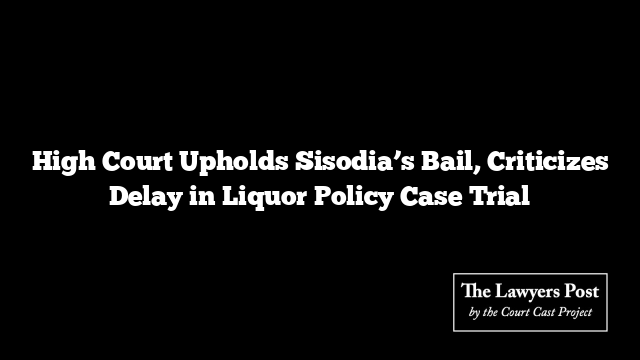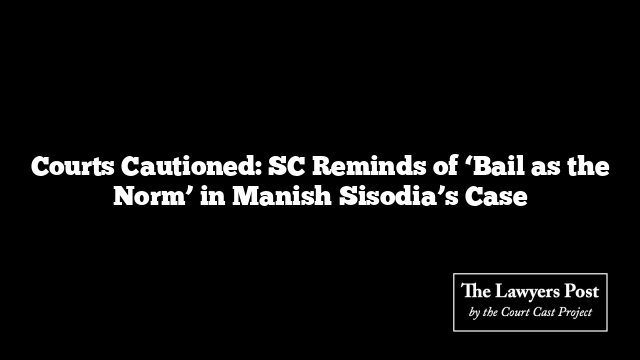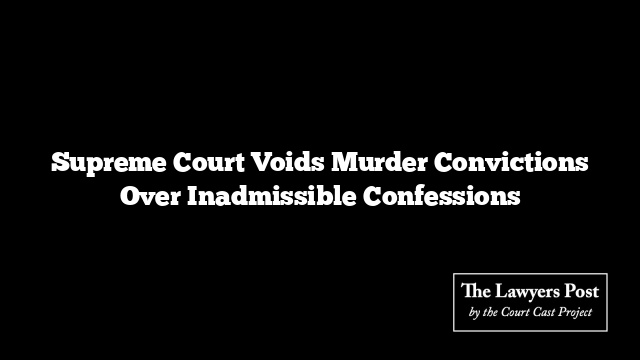In a pivotal ruling, the Supreme Court has granted bail to Manish Sisodia, former Deputy Chief Minister of Delhi and a prominent Aam Aadmi Party leader, in connection with the ongoing liquor policy case. The decision comes after a prolonged delay in the commencement of his trial, leading the Court to emphasize that his right to a speedy trial had been violated.
Sisodia had been incarcerated for approximately 17 months, during which the trial had not even begun. The Court pointed out that this extended detention infringed upon his fundamental right to personal liberty under Article 21 of the Constitution. The lengthy delay, coupled with the staggering volume of evidence—including 495 witnesses and countless documents—made it clear that there was “not even the remotest possibility” of the trial concluding in the near future.
Given these circumstances, the Court ruled that keeping Sisodia in custody indefinitely would be a grave miscarriage of justice. It also noted that Sisodia had deep societal roots, making him a low flight risk, and that the majority of the evidence was already collected and documented, reducing the likelihood of tampering.
While the Court did impose some conditions on Sisodia’s bail, including the surrender of his passport and regular reporting to the investigating officer, it rejected a request by the Additional Solicitor General to impose further restrictions, such as barring Sisodia from visiting the Chief Minister’s office or the Delhi Secretariat.
The Court also criticized the trial court and the Delhi High Court for failing to consider the delays in the trial when ruling on Sisodia’s bail applications. The Supreme Court emphasized that the prolonged incarceration should have been a key factor in their decisions.
Furthermore, the bench expressed disapproval of the contradictory stance taken by the Central Bureau of Investigation (CBI) and the Enforcement Directorate (ED). While the agencies claimed readiness to expedite the trial, they simultaneously requested additional time to file supplementary chargesheets, raising questions about the consistency of their approach.
In a stinging rebuke, the Court dismissed the argument that Sisodia was responsible for the delays, stating that his requests for document inspections were essential for ensuring a fair trial. The bench also rejected the suggestion that Sisodia should seek bail from the trial court, likening such a process to a “snake and ladder” game that would unjustly prolong his quest for personal liberty.
Sisodia had been arrested by the CBI and ED in February and March of the previous year on charges under the Prevention of Corruption Act and the Prevention of Money Laundering Act. His initial bail pleas were rejected by the Delhi High Court, which cited a grave misuse of power in the formulation of the excise policy. However, the Supreme Court’s latest ruling has provided Sisodia with a crucial lifeline, highlighting the importance of the right to a speedy trial in the Indian legal system.





